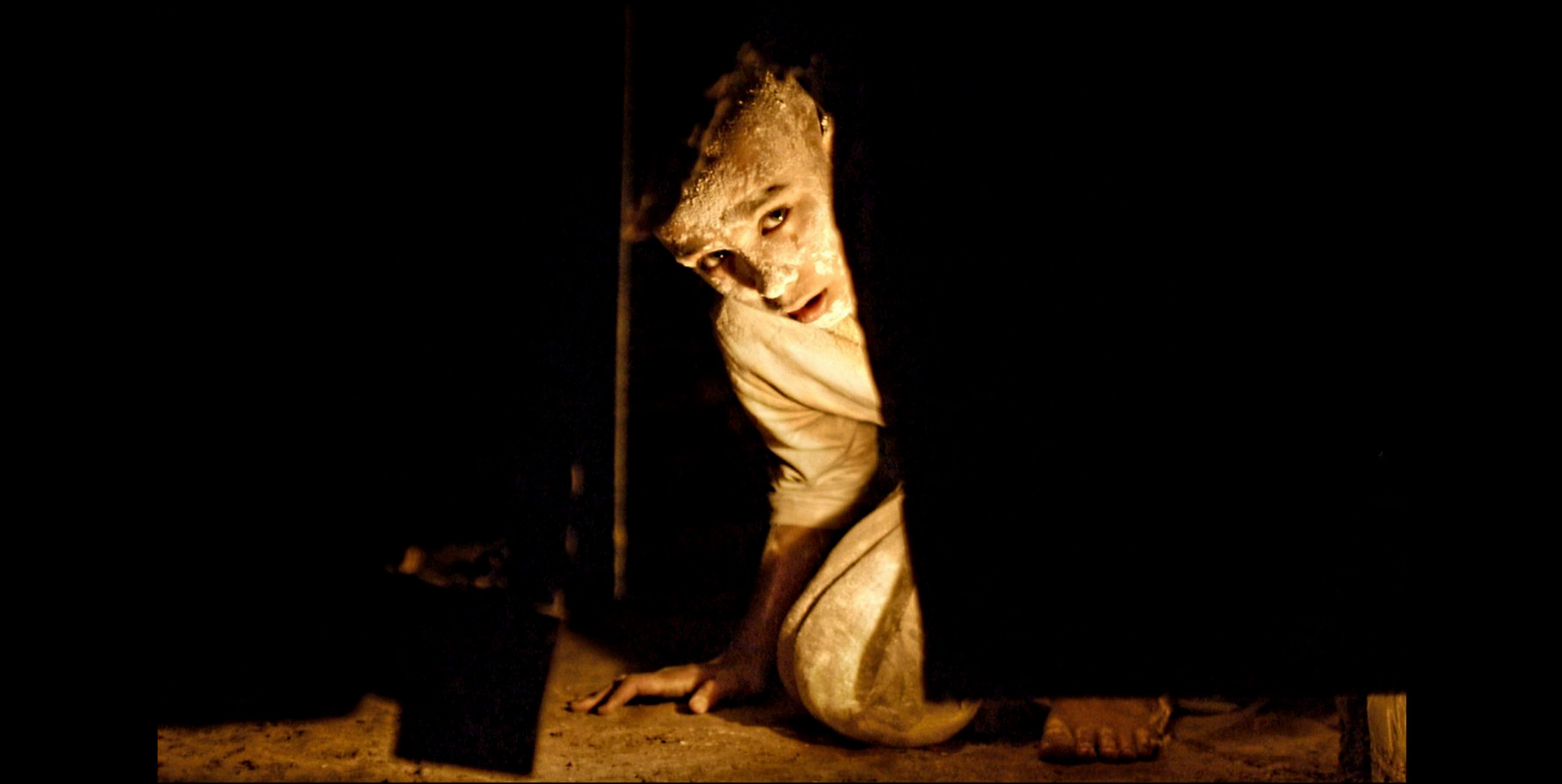Megha Mehta (Batch of 2019) writes for our fortnightly movie review column, Movies with Megha!
Tumbbad is from the same people who made Ship of Thesesus. I haven’t seen the latter, though I have seen an excellent parody of it.[1] However Tumbbad is not your quintessential frustratingly vague and abstract Arthouse FilmTM. It’s a well-made film with a simple message: Greed Sucks. If you’re expecting a Prestige-level complicated plot, then perhaps the film might be underwhelming for you. However the film’s genius lies in two things – first, its execution and cinematography; and second, the way it subtly interlinks the themes of greed and gluttony with feudalism, Brahmanical patriarchy, and the heralding of post-colonial capitalism.
The premise of the movie is a Maharashtrian version of the Greek Cronos-Tartarus myth: Poorti Devi, the Goddess of Prosperity, gives birth to 160 million gods and goddesses at the beginning of time. Her first and favourite child is the demon Hastar. Hastar is your Typical Indian Firstborn MaleTM – spoilt, entitled, and wants to steal his siblings’ food and their gold. While he manages to get his hands on the gold, like any self-respecting younger sibling, the gods refuse to let him take their daily bread. I don’t know if this is a subtle commentary on how capitalism makes you more desperate for money than satisfying your daily needs or basically just the fact that nobody likes people taking their food. Anyhow, since Poorti Devi is a Typical Indian MotherTM, she saves Hastar from being devoured by his siblings and imprisons him deep within her womb for his safety. She does so on the condition that he will be forgotten in time and nobody will ever worship him again.
This deal works for a million years or so, until the protagonist Vinayak Rao’s ancestors decide to build a shrine to awaken the demon (How they manage to recall him after aeons of being forgotten is never explained). As a result the village of Tumbbad is cursed to eternal rain and darkness, but who cares? You see, Hastar shits gold. Literally. The protagonist has one job to maintain his monthly bank balance – to catch golden coins out of Hastar’s ass. How exactly he does it is something you must watch the movie to find out-half of the movie’s thrill lies in the Rao family’s Secret Golden Enema technique. Inevitably Hastar loses his shit (see what I did there-hehe) and Bad Things Happen. I don’t blame him; I don’t care if my ass shits gold, you don’t get to touch it without my permission!
The movie is not for the faint hearted for sure; there is a creepy zombie grandma, flour voodoo dolls, and of course gold-shitting Baby Hastar who’s obviously more adorable than Taimur Ali Khan. But it’s not a scary movie, per se. What’s more interesting is the way Vinayak Rao’s story shifts with the change in the prevailing socio-economic circumstances in pre and post-independent India. The movie never suggests that Vinayak Rao meets the fate he does entirely because it runs in his blood or entirely because he is an entitled Brahmin male. It may be argued that he would have been cursed even if he’d been a nice guy who took care of his family or if he’d only taken as much gold he really needed (What’s especially ironic is that Vinayak Rao tells his business partner the fable about the goose who gave golden eggs in the first half of the movie, and then proceeds to entirely ignore the moral of that tale in the second half). At the same time the movie makes you aware that Vinayak Rao is doomed not just because he’s genetically oriented towards stealing gold from a demon’s butthole, but because he is the kind of guy who wastes all his money on fine clothes and alcohol (The story takes place 50 years before the advent of hedge funds) and thinks it’s okay to take his 14 year old son to a brothel to mark him as a ‘man.’ You also know that the story wouldn’t have taken place in a universe where widows were not stripped of their financial and sexual independence, and either forced into sati or sold into prostitution by their male relatives. Forget about having a well-adjusted childhood, Vinayak Rao wouldn’t have been born if his mother hadn’t become a landlord’s mistress to earn her livelihood after being widowed.
Further, the movie never paints him as an absolute Bad Guy. He’s a terrible husband, a shitty father, a treacherous business partner, and a Feudalistic WomanizerTM. Yet it’s these very weaknesses that make you sympathize with his predicament in the end. It may be argued that if Tumbbad had starred Mukesh Ambani, the movie would have ended with Hastar signing a Joint Venture Agreement for monthly extraction of gold coins at Wall Street approved rates. However the movie works because Vinayak Rao is not a suave South Bombay capitalist – he’s an illegitimate child, and like millions of lesser-endowed villagers, he is powerless before the legal requirement of documentary evidence to show possession of land. In that sense maybe Tumbbad is not a story about the evils of capitalism per se at all, but a warning on the perils of start-up culture. Do your due diligence, warna Hastar aa jaayega.
[1] https://www.youtube.com/watch?v=ENrFprZ9Ssk


Comments